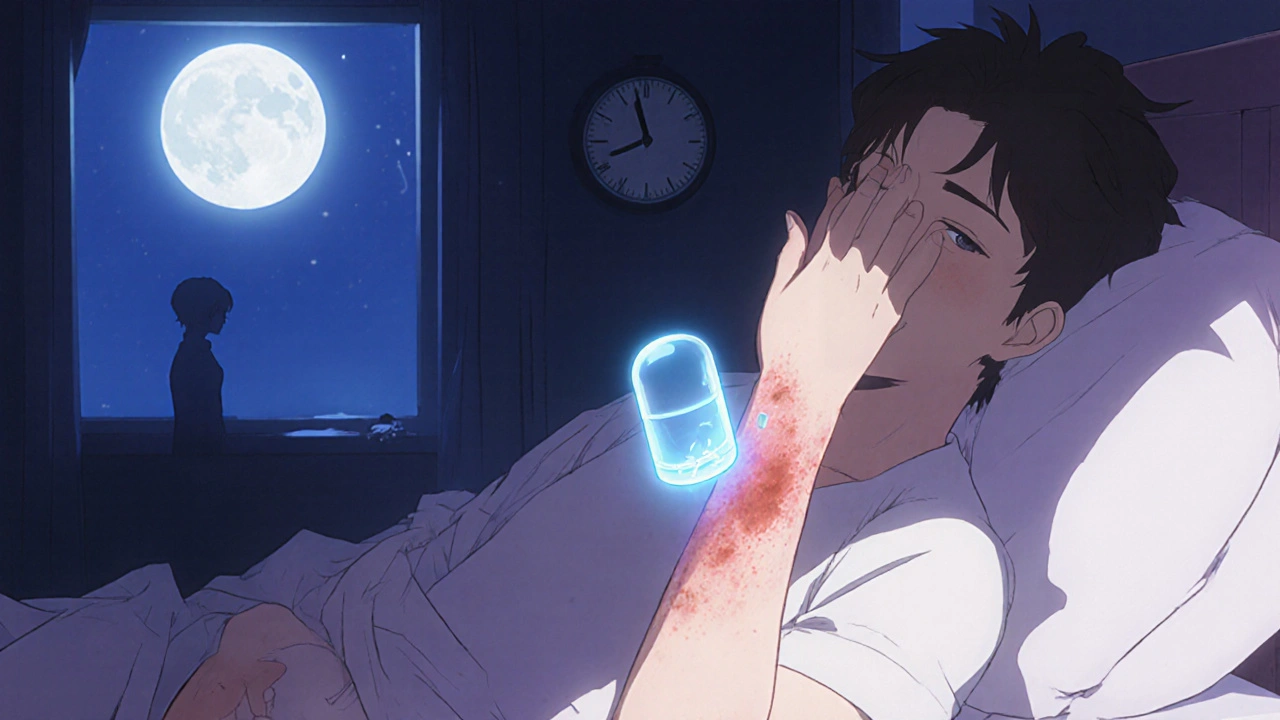Itching Relief Medication: Fast Answers for Fast Itch Relief
When dealing with itching relief medication, any drug or topical product used to stop or soothe itching. Also known as itch cure, it’s the go‑to solution when a rash, allergy, or dry skin makes you scratch.
One of the most common groups are antihistamines, drugs that block histamine receptors to reduce allergic itching. Oral options like cetirizine or loratadine work systemically, while nasal sprays and eye drops target specific areas. Because they act on the body’s histamine response, antihistamines are especially useful for seasonal allergies, hives, or insect bites. If you’ve ever taken a pill and felt the itch fade in an hour, you’ve experienced this class in action.
Another cornerstone is topical corticosteroids, cream or ointment that reduces inflammation and itching locally. Products ranging from 1% hydrocortisone to prescription‑strength betamethasone target skin‑based triggers like eczema, contact dermatitis, or psoriasis. The steroid’s anti‑inflammatory effect calms the nerves that send itch signals, giving fast relief without affecting the whole body. Knowing the potency you need helps avoid over‑use, which can thin skin or cause discoloration.
What to Look for in Itch‑Relief Options
First, identify the cause of the itch. Allergic reactions often respond best to antihistamines, while inflammatory skin conditions usually need a steroid cream. Dry skin, a frequent offender, might be soothed with emollients before adding any drug. When you match the cause to the right class, you reduce trial‑and‑error and get relief faster.
Second, consider whether you need an itching relief medication that works systemically or just on the surface. Systemic drugs—like oral antihistamines or certain oral steroids—reach every nerve ending, which is handy for widespread hives. Topical treatments stay where you apply them, making them ideal for localized flare‑ups such as a single rash or a pocket of eczema.
Third, check the safety profile. OTC antihistamines are generally safe, but they can cause drowsiness in some people, especially older adults. Topical steroids are safe when used as directed, but long‑term over‑use can lead to skin thinning or hormonal effects. If you have kidney or liver issues, talk to a pharmacist before starting a new oral itch medication.
Fourth, think about cost and availability. Generic cetirizine, for example, can be bought for a few dollars a month, while prescription steroid creams may require insurance approval. Many people combine a cheap OTC antihistamine with an inexpensive 1% hydrocortisone cream, covering both systemic and topical needs without breaking the bank.
Fifth, be aware of drug interactions. Certain antihistamines can amplify the effects of sedatives or alcohol. Some steroid creams, when applied over large areas, can be absorbed enough to interact with other hormonal medications. A quick check with a pharmacy database or your doctor prevents unwanted side effects.
The articles below dive deeper into each of these points. You’ll find guides on choosing the right oral antihistamine, comparing steroid potencies, spotting side‑effects, and even tips for buying affordable generic versions online. Whether you’re tackling seasonal allergies, a stubborn eczema flare, or a sudden itchy bite, the collection gives you the practical details you need to decide fast.
Now that you understand the key players—antihistamines, topical corticosteroids, and the factors that guide their use—scroll down to explore the full range of resources we’ve curated just for you.
Hydroxyzine for Itching: A Natural Solution to Relieve Skin Irritations
Learn how hydroxyzine works for itching, proper dosing, safety tips, and how it compares with other antihistamines to safely relieve skin irritations.
